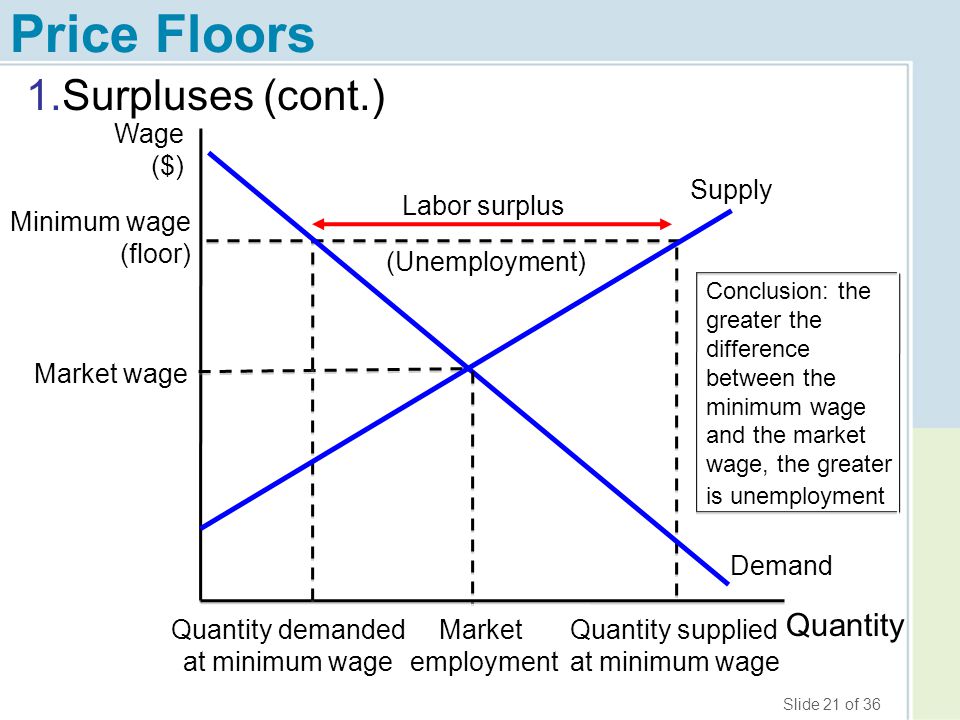Necessarily this reflects a drop in consumer surplus.
Does price floor cause surplus.
Taxation and dead weight loss.
Does a binding price floor cause a surplus or shortage.
A price floor is an established lower boundary on the price of a commodity in the market.
Perhaps the best known example of a price floor is the minimum wage which is based on the view that someone working full time should be able to afford a basic standard of living.
Price and quantity controls.
Price floor is enforced with an only intention of assisting producers.
This is the currently selected item.
Price ceilings and price floors.
Example breaking down tax incidence.
Government set price floor when it believes that the producers are receiving unfair amount.
For example if i am a farmer selling corn that costs 100 dollars to produce the simple market clearing price would be 100 dollars.
On a graph of the supply and demand curves the supply and demand curve intersect at the equilibrium the point where the quantity.
Unfortunately it like any price floor creates a surplus.
In this case it is a surplus of workers suppliers of labor more of whom are willing to work in minimum wage jobs than there are employers demanders willing to hire at that wage.
An price floor will lead to a surplus because even though the firm would like to lower prices to match the equilibrium price it cannot do so legally.
The floor is the lowest point at which something can be sold without losing money.
If price floor is less than market equilibrium price then it has no impact on the economy.
The deadweight welfare loss is the loss of consumer and producer surplus.
Compute and demonstrate the market surplus resulting from a price floor.
How price controls reallocate surplus.
Therefore fewer consumers will purchase the product because some will decide that the utility they get from the good is not worth the price.
Minimum wage and price floors.
A price floor is the lowest price that one can legally charge for some good or service.
However price floor has some adverse effects on the market.
Governments usually set up a price floor in order to ensure that the market price of a commodity does not fall below a level that would threaten the financial existence of producers of the commodity.
The effect of government interventions on surplus.
Price floors cause a deadweight welfare loss.
When a price floor is set above the equilibrium price consumers will have to purchase the product at a higher price.
We call a surplus caused by the minimum wage unemployment.

